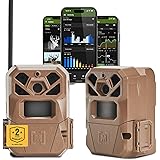The tranquil scenes in the video above offer a captivating glimpse into the world of floating tent camping by the river. This unique approach to outdoor adventure allows enthusiasts to truly immerse themselves in nature, combining the serenity of water with the comforts of a portable shelter. Floating tent camping provides a distinctive vantage point, offering an unparalleled experience that traditional ground camping simply cannot match.
Engaging in this style of camping transforms a simple overnight stay into a memorable expedition. It’s an ideal way to enjoy fishing, cooking, and simply relaxing in a river environment. For those seeking an innovative twist on their outdoor adventures, understanding the ins and outs of this activity is essential.
Embracing the Appeal of Floating Tent Camping
Floating tent camping introduces a fascinating dimension to outdoor living, placing your shelter directly on the water. These specialized tents are designed to be suspended over a river or lake, providing a unique and exhilarating experience. The sensation of gently bobbing on the water while nestled in your tent is unlike any other.
First, consider the distinct advantages a floating tent offers over conventional camping setups. You gain unparalleled access to prime fishing spots and a refreshing escape from ground-dwelling insects and uneven terrain. Furthermore, the constant gentle breeze off the water often provides a cooler and more comfortable environment, especially during warmer months.
Next, it’s worth noting the variety of floating tents available today, catering to different preferences and group sizes. Options range from single-person inflatable rafts with integrated tents to multi-person tensile structures that suspend between trees or fixed points on the bank and a water anchor. Each design offers a unique blend of stability, portability, and comfort, making floating tent camping accessible to many.
Setting Up Your Riverside Floating Camp Safely
Proper planning and setup are paramount for a successful and safe riverside floating tent camping adventure. The first step involves carefully selecting your location, considering factors beyond just scenic beauty. Evaluating river currents, water depth, and potential debris is crucial to ensure a stable and secure setup.
Beyond that, accessibility to the riverbank for supplies and emergencies should always be a priority. You’ll also want to research local regulations, as permits or specific restrictions may apply to camping on certain rivers or private properties. A well-chosen spot will enhance both safety and enjoyment during your outdoor camping experience.
Essential Gear for Your Floating Expedition
Your gear list for floating tent camping will differ slightly from traditional setups, prioritizing stability and water safety. A robust anchoring system is vital; this might include multiple anchors suitable for different riverbeds, such as screw anchors for softer bottoms or heavy-duty weights for rocky areas. These anchors ensure your floating tent remains securely in place overnight.
Additionally, strong ropes, marine-grade carabiners, and potentially a small, inflatable boat or kayak are essential for deployment and access. Personal flotation devices (PFDs) for everyone are non-negotiable safety items, even for strong swimmers. It is always better to be overprepared when dealing with a water environment.
Deployment and Safety Protocols
The deployment process requires careful attention to detail, starting with a thorough check of all connections and anchors. Ensure your floating tent is level and taut, providing a stable platform before anyone occupies it. Always have a clear emergency plan, including how to reach the shore quickly if conditions change unexpectedly.
Monitoring weather patterns is another critical safety measure; sudden storms or high winds can quickly turn a tranquil experience into a hazardous one. A reliable weather radio or satellite communicator is an invaluable tool for staying informed. By adhering to these safety protocols, you can confidently enjoy the unique thrill of floating tent camping.
Fishing from Your Unique Floating Basecamp
One of the most compelling reasons to try floating tent camping is the incredible fishing opportunities it presents. Being directly on the water gives you an unparalleled advantage, allowing for a quiet approach that minimizes disturbance to the fish. You can cast into prime spots that are often unreachable from the bank, significantly increasing your chances of a successful catch.
Moreover, the comfortable, low-to-the-water perspective from your floating tent enhances the entire fishing experience. You’ll be able to observe the water more intimately and react quickly to any signs of fish activity. This immersive approach to river fishing makes floating tent camping a dream for anglers.
Optimizing Your Gear and Techniques
Selecting the right fishing gear is crucial for maximizing your success from a floating tent. Medium-light spinning rods are versatile for various river fish, allowing for both precise casting and the ability to handle decent-sized catches like trout, bass, or catfish. Consider using lures and baits specifically known to attract species common in your chosen river.
Before you cast your line, always familiarize yourself with local fishing regulations, including licensing requirements and catch limits. Adhering to these rules helps maintain healthy fish populations and ensures a sustainable angling future. Thoughtful preparation ensures a rewarding fishing experience as part of your outdoor camping adventure.
Embracing the “Catch and Cook” Philosophy
The “catch and cook” philosophy is deeply intertwined with the floating tent camping experience, offering the freshest possible meal. Ethical fishing practices are at the core of this, meaning you only catch what you intend to eat and release fish responsibly if not keeping them. This respect for the ecosystem is a cornerstone of responsible outdoor camping.
Once caught, keeping your fish fresh until cooking is vital for taste and safety. A small cooler with ice is perfect for this, or you can use a stringer to keep the fish in the cool river water until preparation time. Preparing your meal directly from the day’s catch adds an unforgettable dimension to your riverside camping journey.
Mastering Outdoor Culinary Delights
Riverside camping offers a fantastic opportunity to indulge in outdoor cooking, transforming simple ingredients into delicious meals. Whether you opt for a portable gas stove or embrace the primal joy of a campfire, safety and efficiency are key. Always set up your cooking station on the riverbank, a safe distance from your floating tent, and ensure it’s stable and clear of flammable materials.
Additionally, bring essential cooking surfaces like a sturdy grill grate for campfires or a cast-iron pan for stove-top meals. Proper food storage in sealed containers and coolers is crucial to prevent spoilage and deter wildlife, ensuring a hygienic culinary experience. Thoughtful planning for your outdoor cooking setup makes riverside dining a highlight of your trip.
Simple and Satisfying Campfire Recipes
When it comes to camp cooking, simple, flavorful recipes that require minimal ingredients and cleanup are best. Freshly caught fish can be pan-fried with a little butter and seasoning, or wrapped in foil packets with vegetables and cooked directly on embers. These methods lock in moisture and flavor, creating a truly satisfying meal.
One-pot meals like chili or stew are also excellent choices, providing hearty sustenance with less fuss. Remember to pack biodegradable soap and a scrub brush for easy cleanup, and always carry out all food waste and scraps. This adherence to Leave No Trace principles helps preserve the natural beauty of your riverside camping spot.
Fire Safety and Management
Responsible fire management is an essential skill for any outdoor enthusiast, particularly when riverside camping. Always build campfires in designated fire rings or create a safe, contained pit away from overhanging branches and dry vegetation. Never leave a fire unattended, even for a moment, and keep a bucket of water or shovel nearby for emergencies.
Before leaving your campsite or retiring for the night, ensure your fire is completely extinguished and cold to the touch. Douse it with water, stir the ashes, and repeat until no embers remain. This diligent approach to fire safety prevents wildfires and protects the precious river environment for future enjoyment of outdoor camping.
Maximizing Your Riverside Adventure
Floating tent camping by the river offers more than just a unique place to sleep, fish, and cook. It’s an invitation to fully engage with the natural world around you. Beyond the immediate activities, take time to observe wildlife, from soaring eagles to river otters, and enjoy the unparalleled clarity of the night sky free from light pollution.
Additionally, the river itself provides opportunities for other recreational activities like paddling in a canoe or kayak, swimming in designated safe areas, or capturing stunning photographs of the serene landscape. These moments add richness and depth to your outdoor camping adventure. Embracing these varied activities ensures a holistic and fulfilling trip.
Adhering to Leave No Trace Principles
To ensure these pristine environments remain beautiful for everyone, practicing Leave No Trace principles is non-negotiable. This means packing out everything you pack in, including all trash, food scraps, and even biodegradable items. Leave your campsite exactly as you found it, or even better, by picking up any litter left by others.
Minimize your impact on vegetation by sticking to established trails and campsites, and avoid disturbing wildlife. Respecting other river users and understanding private property boundaries contributes to a positive experience for all. Following these guidelines is fundamental to responsible outdoor camping and helps preserve the natural beauty of our rivers.
Preparing for the Unexpected
While floating tent camping is an exhilarating experience, preparedness for unforeseen circumstances is vital. Always carry a well-stocked first aid kit, tailored to handle common outdoor injuries and ailments. Understand how to use its contents and be prepared to administer basic first aid if needed.
Stay informed about potential weather changes, as conditions can shift rapidly, especially near water. Also, be aware of the local wildlife and know how to react calmly and safely if you encounter animals. Adequate preparation ensures that your floating tent camping adventure remains enjoyable and safe, allowing you to fully appreciate the unique appeal of riverside camping and outdoor camping.








